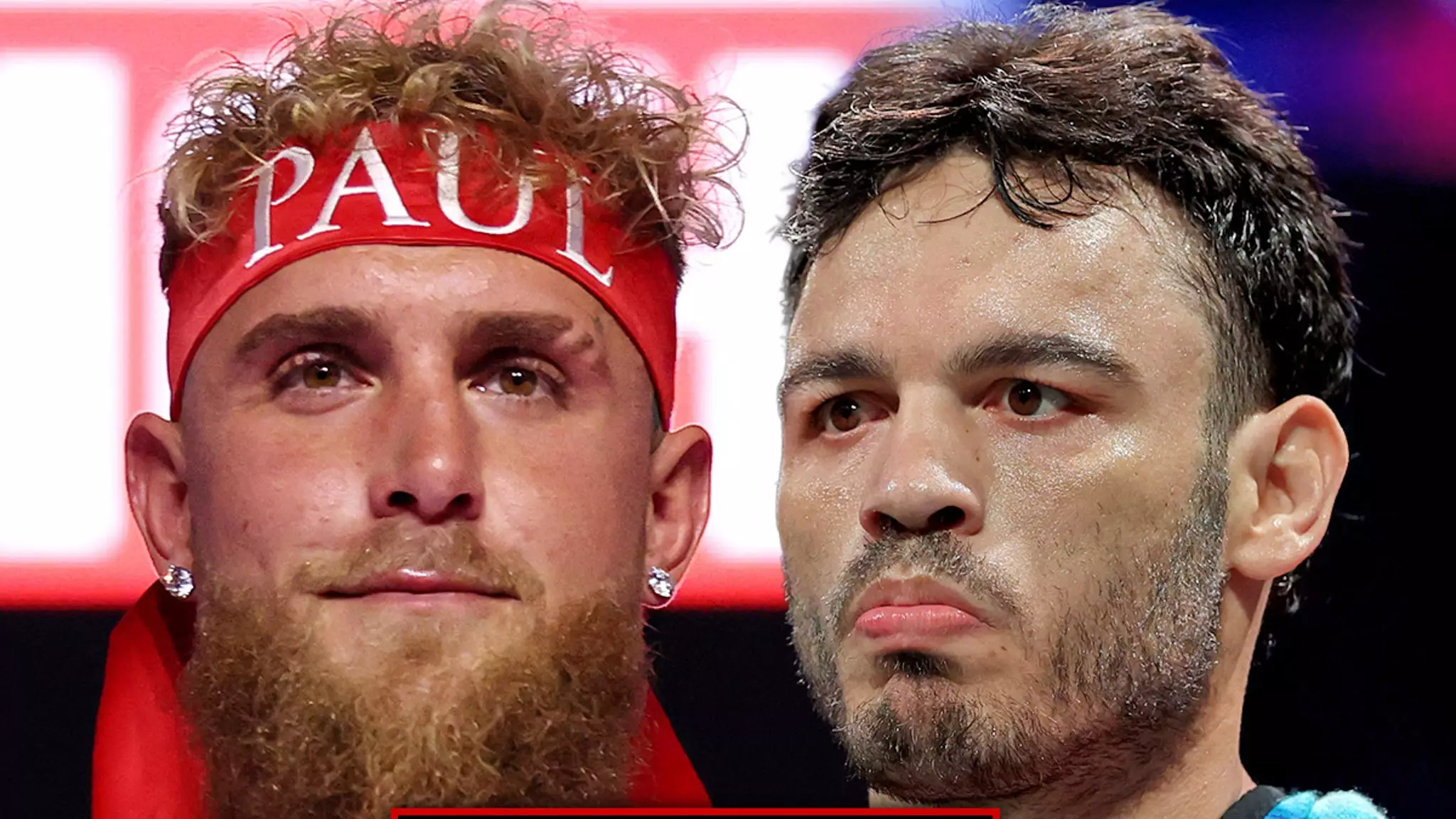In a world where social media momentum can shape narratives and sway public opinion, Jake Paul’s recent actions concerning Julio Cesar Chavez Jr. drop a heavy shadow of controversy over the intersection of celebrity culture and immigration policy. Paul’s seemingly celebratory tone—marked by a solitary American flag emoji—post-ICE’s detention of Chavez, raises questions about the influence of fame on sensitive legal matters. Does a figure like Paul, with a history of sparking attention, have the moral authority to comment on immigration enforcement? Or does his behavior reveal a tendency to trivialize serious issues by cloaking them in cryptic tweets? These actions, whether intentional or not, underscore the dangerous overlaps between celebrity bravado and institutional procedures.
The timing of Paul’s tweet fuels suspicion: just days after his boxing victory over Chavez and mere moments after news broke of the latter’s detention, Paul chose to post a symbol that might be interpreted as a celebratory gesture. Is this mere coincidence, or a calculated move to leverage the situation for personal gain or notoriety? The line between harmless commentary and inflammatory provocations becomes blurred in such scenarios. Public figures wield disproportionate power—either to highlight injustices or to sensationalize issues—and their influence warrants scrutiny.
The Larger Narrative of Chavez Jr.’s Legal Troubles and Deportation
Julio Cesar Chavez Jr.’s detainment by ICE is rooted in a complex legal and criminal context, far from a straightforward immigration matter. The Mexican boxer’s warrant stems from allegations involving weapons trafficking and cartel associations, with authorities pointing to fraudulent statements made during his application process. The fact that the U.S. government flagged him as a “public safety threat” underscores the seriousness of these allegations and highlights how immigration enforcement intersects with national security concerns.
Chavez’s case exemplifies the often opaque and heavily scrutinized process of deportation, where claims of criminal misconduct can overshadow personal histories. His detention signals not just a legal consequence but also raises broader questions about how society treats individuals with controversial backgrounds. Should their criminal ties override their athletic accomplishments or personal narratives? Or should due process and rehabilitation be prioritized? Chavez’s deportation invites debate on the balance of public safety and human rights, especially when fame and legal troubles collide.
The Power and Potential Consequences of Celebrity Commentary
Jake Paul’s remarks open a wider conversation about the responsibilities that come with fame. As a YouTuber turned professional boxer, Paul operates at the intersection of entertainment and influence. His social media presence can amplify issues or trivialize them. When he suggests that ICE should pursue Canelo Alvarez, he not only injects a layer of ambiguity into legal proceedings but also risks entangling himself in diplomatic tensions and public misinterpretation.
The dangerous allure of such rhetoric lies in its capacity to mobilize followers—potentially creating a misleading narrative about justice and enforcement. While some might perceive Paul’s comments as humorous or provocative, others could see them as insensitive or irresponsibly tone-deaf. Celebrity figures have a moral obligation to consider the impact of their words, especially in cases involving vulnerable individuals facing criminal allegations and deportation.
By implying a future target for immigration authorities, Paul inadvertently politicizes a complex issue and simplifies a nuanced legal process. This trend amplifies the need for celebrities to exercise restraint and awareness, recognizing that their influence extends far beyond entertainment. Ultimately, the Chavez Jr. case underscores the perils of celebrity machismo becoming entangled with real-world consequences, reminding us that public figures should weigh their words carefully—influence, after all, bears a heavy responsibility.

